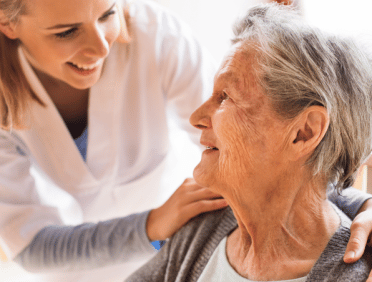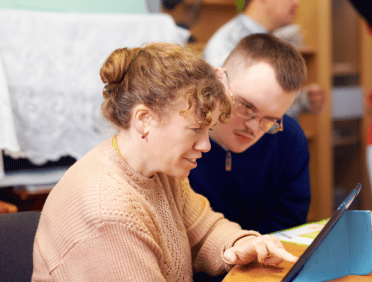Under the Care Act 2014, the adult safeguarding duties apply to an adult over the age of 18. This adult will have a need for care and support, whether or not the local authority is currently meeting any of the needs that they have, and is either experiencing or is at risk of neglect and abuse. As a result of these support and care needs, this adult will be unable to properly protect themselves from either the experience of, or the risk of neglect and abuse.
Care and support is all about the mixture of emotional, practical and financial support given to adults who need extra help in order to successfully manage their lives and achieve independence. To that effect, care and support needs include the assessing of individual needs, providing services, and allocating funding to help a person purchase their own support and care. This can include home care, care homes, day services, personal assistance, or the purchasing of adaptations and aids as necessary.
The aims of adult safeguarding are as follows:
- To reduce the risk of abuse or neglect to adults that have care and support needs, preventing them from being harmed.
- To prevent neglect and abuse wherever possible for the purposes of safeguarding.
- To provide safeguarding support to adults in such a way that helps them to have control about how they live their lives and gives them the confidence to make decisions.
- To help promote an approach which focuses primarily on improving the quality of life for the adults involved in safeguarding.
- To help raise public awareness of safeguarding so that communities as an entity can help to play a part in preventing, responding, and identifying neglect and abuse.
- To provide support and information and accessible ways that help people to understand about the different types of abuse, how to stay safe from abuse, and what to do to broach a concern about the safety or well-being of a vulnerable adult.
What Are Care and Support Needs in Safeguarding?
Care and support needs in safeguarding are considered to be the mixture of financial, emotional, and practical support that is given to vulnerable adults who require extra support to be independent and manage their lives in the way that they choose.
Anybody who is operating under the belief that vulnerable adults do not exist in everyday society is incorrect. There are countless vulnerable adults living across the UK in every village, town and city.
Some of these vulnerable adults live in special complexes and homes designed to provide them with assisted-living while allowing some semblance of independence, whereas others freely exist in the active community in their own homes. The precise type of situation a vulnerable adult exists and will depend on the depth and scope of their condition, how it affects everyday life, and what support system is in place for them.
Health and social care workers frequently provide support to vulnerable adults as part of their job role. The roles and responsibilities that are expected of these workers will vary from one situation to the next.
Who Does This Apply To?
Safeguarding responsibilities can apply to many different people, all of whom have care and support needs. While they might have different needs depending on the situation, they are all part of the safeguarding process.
People who have physical sensory and communication disabilities, mental health needs, and difficulties with learning all require care and support.
People who have alcohol or drug dependencies require support, as do people with specific types of physical illnesses. People who suffer from dementia are frail due to other factors besides age all need support. However, it’s probably worth noting that age is also a contributing factor. Finally, people who are homeless require access to care and support schemes.
The Care Act 2014
Under the care act 2014, local authorities have new responsibilities and functions. They have an obligation to make sure that the people who live within their areas receive certain services and support.
Local authorities have to make sure that people within their area receive services that prevent the cannons from becoming more serious, or that delay the overall impact of their needs. They also have an obligation to make sure that these people can get the advice and information they need to make the right decisions about their care and support in the community. Finally, they have an obligation to make sure that there is a range of high quality, suitable services from which a person can choose.
It’s important to remember that the care act has been designed to help improve the well-being and independence of ordinary people.
It clearly states that local authorities have to either arrange for a provide services that help individuals who have needs for support and care or delay people from deteriorating to the point that they need ongoing care and support.
local authorities have to explore what resources and services are already available in the area, like for example local community and voluntary groups, and how these may be of assistance to local people. They have to identify anybody in the local area who has support and care needs that are not being met at this moment.
They need to identify any carers in the immediate area who have support needs that are not currently being met. As they take on this role, local authorities have an obligation to work within their communities to provide services that help to keep people independent and in good health. These responsibilities include identifying local resources and support that are already available, and helping people to access them where necessary.
Local authorities also have the responsibility of creating and providing services that are aimed at helping people to regain skills after a period of being incapacitated, like for example having to spend time in hospital. This helps to reduce the needs of the overall community. They should work with groups like the NHS to think about what kind of services people might need both now and in the long-term.
Under the act, local authorities have to provide comprehensive advice and information about care and support services for people in the local area. The aim of the services is to help people understand how support and care services work on a local basis, how different funding and care options are available, and how people can access support and care services.
The act clearly details that they have to provide general information about the types of care and support that are available like residential care, offending services and personal assistance available to local people. They must also be upfront about what kind of care and support services are available to local people, like for example what types of local providers offer specific services. They also have to specify what processes local people have to go through in order to get access to the care and support available.
Other responsibilities include making sure that local people can find independent financial advice regarding support and care, information about how people can generate concerns about the well-being or safety of somebody who has support needs, and also to make sure that local people benefit from independent advice regarding finances.
All of the information that is provided by local authorities has to be for the purpose of helping people to understand the specifics of what’s available regardless of their situation.
The act also requires local authorities to be able to develop a market that produces a range of sustainable care and support services that are available for the local community. When authorities develop and purchase the services, they have to consider how they may affect the well-being of the individual. Local authorities have to consider their approach to purchasing support schemes, and to promote the well-being of people receiving the schemes above all else.
finally, local authorities have to engage with other local providers to help develop a proper relationship for the sake of support. Everybody should be aware of what services need to be available both in the future and immediately. New types of services should be developed as a result of this collaboration.
The Mental Capacity Act
The mental capacity act was designed to empower and protect people who may not have the mental capacity required to make decisions regarding their treatment and care. It is applicable for people over the age of 16.
The act can cover decisions about every day life, like what to wear, what to buy at the shop, or serious, life changing decisions like whether or not to have major surgery or move into assisted-living.
good examples of people who may lack the mental capacity required to make decisions about their lives include people with a mental health illness, people who have had a stroke, people with dementia, people who have a severe learning disability, or people with a brain injury.
However, it is important to acknowledge that just because a person has one of these conditions, that does not necessarily mean that they cannot make a specific decision.
Essentially, somebody can lack the mental capacity required to make complex financial decisions, but have rudimentary capacity for the sake of purchasing items for themselves. It’s important to make this distinction, especially when trying to make decisions on behalf of someone with a reduced mental capacity.
As a general rule, the following ideas should be kept in mind.
You should assume that somebody has the capacity to make a decision for themselves unless there is evidence that suggests otherwise. Where possible, you should always try and help people to make their own decisions. You should also not treat somebody as lacking in capacity to make a decision simply because the decision they make is not necessarily a wise one. If you do make a decision for somebody who has reduced capacity for making decisions, it has to be done with the best interests in mind. Furthermore, care and treatment that is provided to somebody who lacks the mental capacity to make decisions should be the least restrictive of their basic freedoms and rights.
People who have a reduced capacity are allowed to express preferences for treatment and care under the act.
They also have the right to appoint a trusted person to make decisions for them based on the belief that they will lack the capacity to do so in the future. A common example of this is when somebody is diagnosed with dementia, a condition which worsens with time. People who lack the capacity to make decisions, even if they have appointed somebody to act on their behalf, should also be provided with an independent advocate. This is somebody who will support them to make decisions in specific situations like the decision to have serious treatment, or to make a decision where restrictions might be placed on their rights and freedoms, but is done so with their best interest in mind.
Making Safeguarding Personal (MSP)
Making safeguarding personal is not just about getting the consent of an individual.
Instead, it’s also about hearing the views of people about what they consider to be important as an outcome. This means that they should be given opportunities at all stages of the safeguarding process to change things. This might mean that they don’t want to have contact with someone or that they want to change a part of the care plan.
These wishes are important regardless of whether or not the person has the capacity to make informed decisions about their safety.
Safeguarding Whistleblowing
Your Role as the Person Raising Concern
As the person raising concern about a safeguarding issue, you have a responsibility to act if you believe that somebody is at risk of, or is currently experiencing abuse and neglect.
Raising concern is all about making a proper note of the situation, writing down as much information as you can, and then presenting it to your immediate superior.
The exact rules and regulations for reporting and recognising abuse will vary from one situation to the next and one person to the next. There are many situations where you may need to report abuse.
You should take all concerns immediately to your manager and alert a local authority if necessary. Any response you take should be proportionate to the situation at hand, however.
What Happens if I Report Something?
When you take the time to report something to your manager, they have an obligation to investigate the situation. This is the same as if it was a local authority. When reporting these things, all parties involved should keep proper notes about what is going on.
Learn Q Provides Safeguarding Care and Support Needs
When it comes to understanding safeguarding, as well as care and support needs, LearnQ can provide full training for an entire organisation which will help them to make the right decisions.
This training is vital for protecting vulnerable adults from harm, as well as understanding the role of care and support services within the community. Local authorities have a responsibility to protect vulnerable parties from harm, so this kind of training is important. LearnQ can provide training for as many staff as necessary, and can deliver real qualifications, so please feel free to contact a team member for more information. This training is a required part of any successful care services.
To download a .pdf of this blog, please click here












